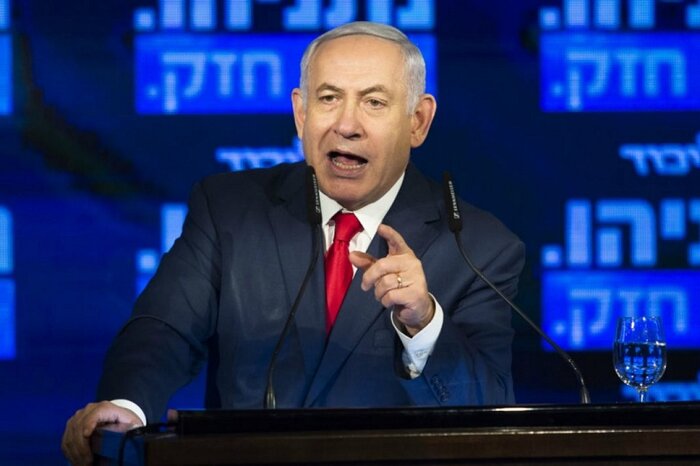The Israeli regime attacked several positions in Syria, Lebanon and Iraq, at the same time that Iranian Foreign Minister Mohammad Javad Zarif was making overtures with Europe, especially France to move forward on Elysee proposals on possible de-escalation of tensions between Iran and the US.
But, should both sides sit down and reach an agreement, it could definitely mean an end to the so-called US maximum pressure that has been designed to bring Tehran to its knees.
Many in the US are talking about sacking John Bolton, Trump’s national security adviser, one of the most hawkish supporters of a regime change in Iran.
Israeli Prime Minister Benjamin Netanyahu, however, has a domestic front to fight in, as he heads to second polls after failing to form a national government.
Netanyahu is not doing good in public opinion polls, less than a month to snap parliamentary elections, so he can play one of his easy cards: attacking Arab states to hammer home the so-called “security threats”, one of the major concerns of the Israeli electorate.
The Israeli PM, who is also caretaker defense minister, needs to portray a positive and strong image of himself, claiming that “he is the one that can save Israel from security threats”.
Seyed Hassan Nasrallah, head of Hezbullah, one of the major political players in the Lebanese politics, however, has not kept silent, vowing a firm response to the Israeli “adventurism”.
Lebanon
Back in 2006, the Zionist regime's forces failed to defeat Hezbullah during the 33-day war, that Tel Aviv thought could be a piece of cake.
From that fiasco on, Hezbullah has not only become a greater military force, but is also the major political player in Lebanese politics. The power balance has totally changed in this country.
Syria
When the civil disobedience in Syria back in 2011 morphed into an all-out international proxy war in the Arab country, Tel Aviv regime's authorities thought that could mean an end to the so-called “resistance movement”, made up of Iran, Lebanon and Syria,
Some even talked about assassinating Syrian President Bashar al-Assad to make his government topple faster.
Eight years on, not only is Assad alive, but also his government has has withstood external pressures and now is moving forward towards reconstruction.
The resistance movement has now gained more confidence and can better resist the Israeli attacks.
Iraq
The Zionist regime of Israel, supported by the US, have used all their means to divide the Iraqi popular mobilization forces, also known as the Hashd al-Shabi, who have had significant contribution to defeating the ISIS across the Arab country.
Playing the “Divide and Conquer” policy, they have been trying to promote movements and laws inside Iraq that prevent the Hashd al-Shabi forces from being integrated into the Iraqi official armed forces.
Attacking Hashd al-Shabi forces will not prove fruitful for Israel, experts believe.
On the other hand, Iran and Hamas are back on speaking terms despite their earlier differences towards the situation in Syria.
In Yemen as well, the US another major ally Saudi Arabia, is losing its own war that has wreaked havoc in the Arab country.
With all these fronts consolidated by Iran’s active diplomacy of resistance, Israelis need to think twice before launching other attacks against any of the Arab countries.
9218**2050
Follow us on Twitter @IrnaEnglish
